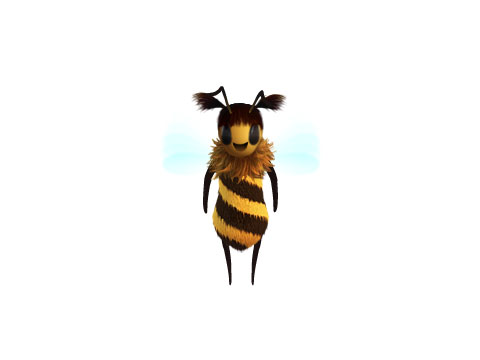Monday, April 25, 2005
Robot camel jockeys
Thu Apr 21, 1:49 PM ET
DOHA (AFP) - On its first run round a Qatari camel-racing course, the robot jockey has set a time seconds off the record set by a child jockey, whose use in the popular sport has been banned after international criticism.
"We're 20 seconds away from the best time using a human jockey over five kilometres (three miles)," said Alexander Colot, director of the Swiss firm K-team which has built the robot jockey for Qatar.
The robot challenged its only competitor, a child jockey, over the five-kilometre course on the Al-Shahaniya race track, near Doha, watched by spectators and media drawn to this unique event.
Gulf Arab monarchies are trying to bring order to the national sport in the face of protests over the trafficking of young children from developing countries, mostly in Asia, as jockeys.
In December, Qatar banned the use of children in camel races and said it was preparing to use robot jockeys from 2005.
Mounted on a racing camel, which has an average speed of 40 kilometres (25 miles) per hour, the remote-controlled robot jockey displays remarkably similar gestures to those of a human jockey, even whipping the camel to make it go faster.
After "about 30 attempts" since launching the idea in April 2004, "the product is now ready," said Colot.
Human rights groups raised the alarm over the exploitation of children by traffickers who pay impoverished parents a paltry sum or simply kidnap their victims.
The children, mostly from Bangladesh, Sri Lanka and Pakistan, are then smuggled into the oil-rich Gulf states.
They are often starved by employers to keep them light and maximise their racing potential. Mounting camels three times their height, the children -- some as young as six -- face the risk of being thrown off and trampled.
Earlier this month, the United Arab Emirates successfully completed its first robot jockey exercise, with a ban on the use of jockeys aged under 16 and weighing less than 45 kilograms (100 pounds) also now in effect.
The UAE had in principle already banned the use of children under 15 since 1993, but abuses remain widespread and no one was ever prosecuted.
Property rights for the robot have been registered for Qatar.
"No one can manufacture (a robot) without the authorisation of Qatar," said Rashed Ali Ibrahim, a member of the Qatari committee charged with promoting robot jockeys.
According to Colot, "the Emirati model (resembles) a doll rather than a robot."
Doha is increasingly set on developing its own robot jockey, "notably with a movement of arms and battery-powered," said committee president Sheikh Abdullah bin Saud al-Thani, who announced a plan to create "a factory for robot jockeys" in the gas-rich Gulf state.
"We hope to introduce around 20 robot jockeys" in 2006 at Qatar's annual grand prix in 2006, he said.
While the Swiss manufacturer refuses to reveal the cost of the project, Sheikh Abdullah said that, "the first phase involved investments of some three million riyals (800,000 dollars)."
"This experiment can succeed and be generalised," said Fredj Fenniche, regional representative for the UN Human Rights Commission.
"Our way seeks to make Qatar a state of law and respect of human rights, and we won't tolerate going against this," said Sheikh Hamad bin Jassim bin Faisal al-Thani, president of the organising committee for camel races in Qatar.
Urdu society holds ninth monthly poetry session
GULF TIMES
Urdu society holds ninth monthly poetry session
Publish Date: Sunday, 24 April, 2005, at 12:03 AM Doha Time
QATAR’S India Urdu Society has held its ninth monthly mushaira (poetry session) in Doha. The mushaira, sponsored by Rashid Ali, was attended by a number of well-known personalities of Qatar. The Society is affiliated to Indian Cultural Centre (ICC) under the aegis of the Indian embassy.
The mushaira was presided over by Zafar Siddiqi, who teaches process engineering at Qatar Petroleum’s Training Centre. The chief guest was noted scholar, writer and poet Dr Khalilur Rahman Raaz, while Prof Ali Naqi, who teaches at Cornell Medical College, was the guest of honour.
The session started with the recitation of the Holy Qur’an by Qari Ghayathuddin. Jaleel Nizami, founder president of the society, presented a Na’at. Ateeq Anzar did the initial compering.
In his presidential address, Siddiqi complimented the organisers for their efforts to promote Urdu in Doha. He also offered his help and co-operation to the Society. Dr Raaz lauded the work being done by the Society in Doha, adding that the poetry session provides a great opportunity in learning new aspects about the language. Prof Naqi lauded the role played by the Society in popularising Urdu. He said: “Urdu is one of the world’s most popular languages and is spoken in many countries of the world.”
The poets who presented their works were Dr Raaz, Naseem Kazmi, Rasheed Niaz, Jaleel Nizami, Ateeq Anzar, A R Sadaf, A H Qabil, Dr Shams Madani, Asfandyar Ansari, Jatender Baja, Maqsood Khan and A Nabeel.
Noted singer Abul Khair sang a ghazal of Jigar Muradabadi. Maqsood Khan Maqsood compered the session. The Society presented gifts to all the participating poets. Jaleel Nizami proposed a vote of thanks on behalf of Rashid Ali. A feature of the mushaira was its integration of Urdu and Hindi poets and ghazals and nazms by Indian and Pakistani poets.







